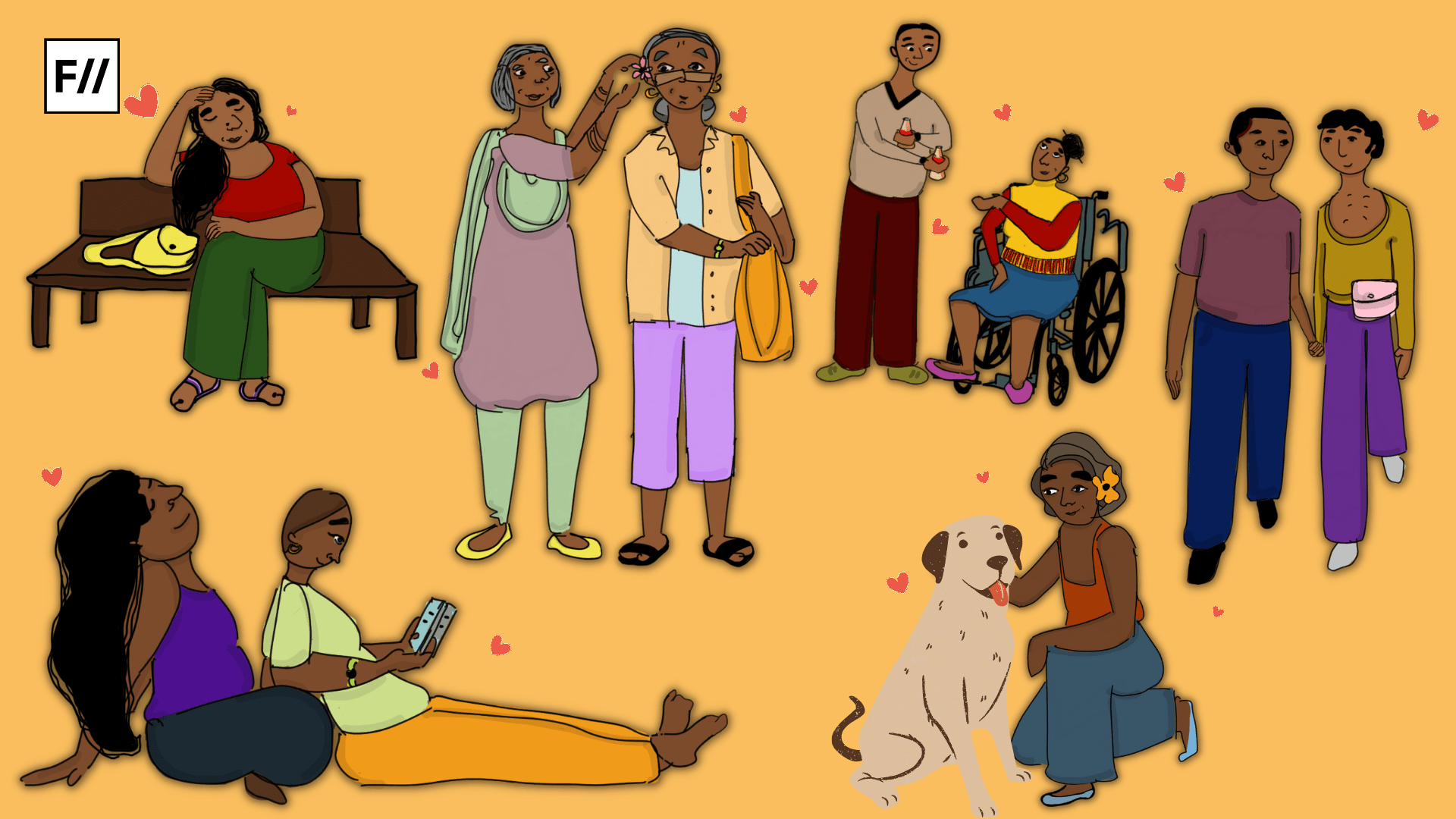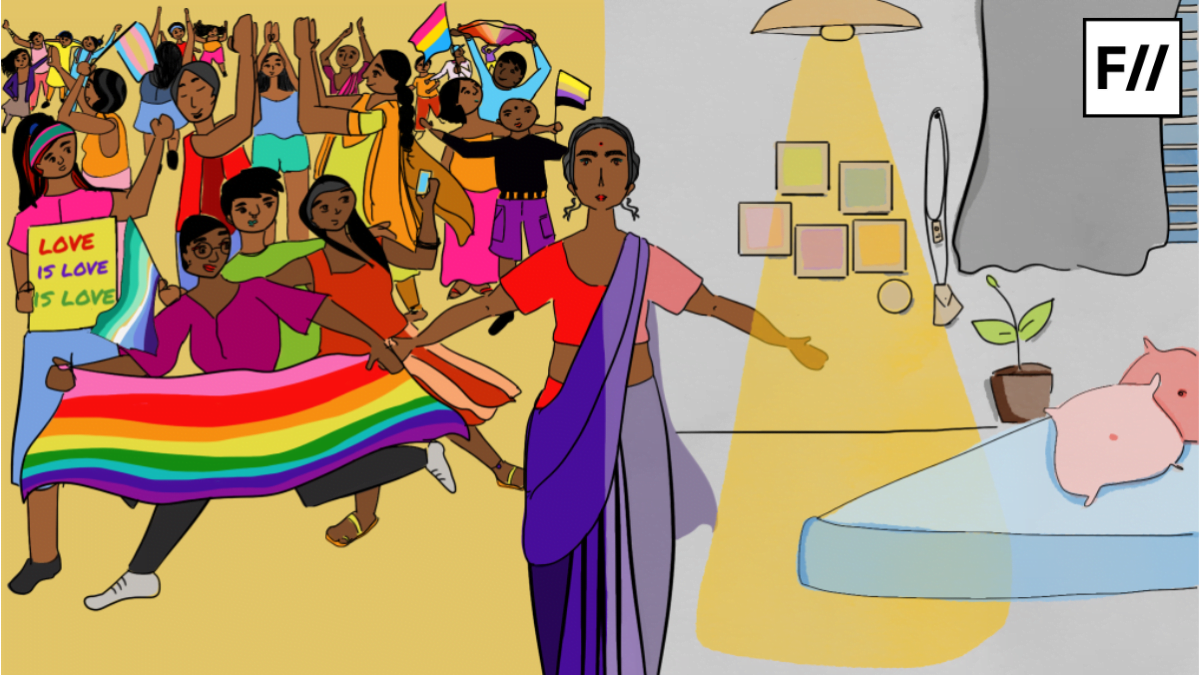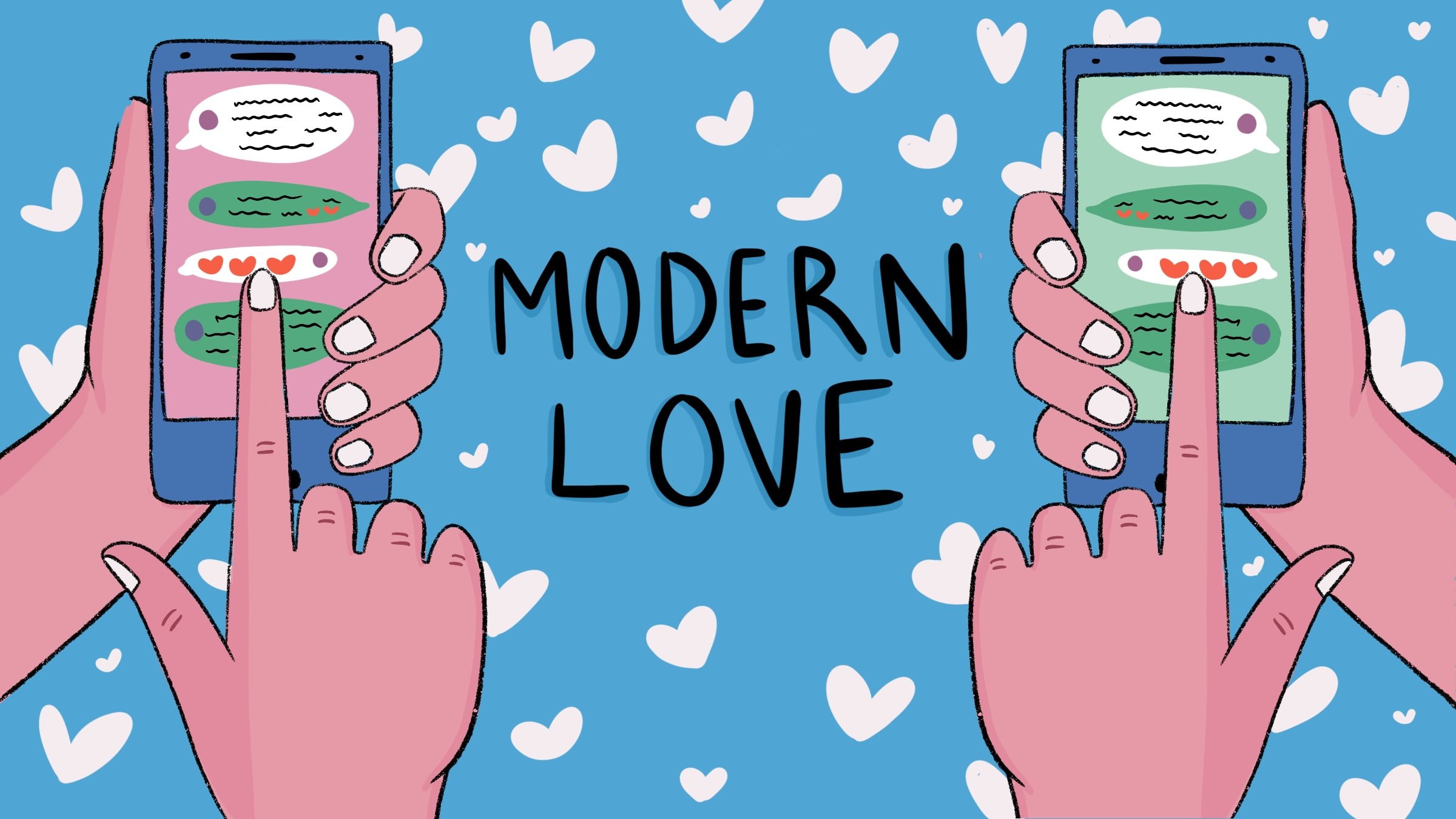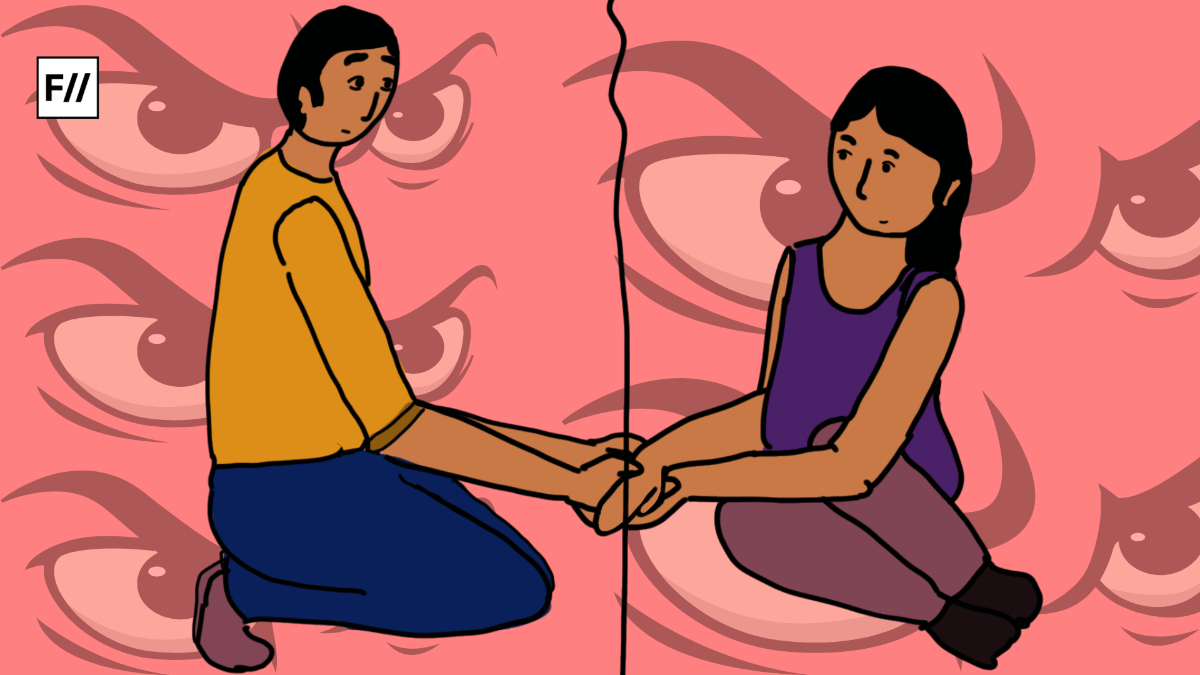Love, the universal language that transcends boundaries, often finds itself navigating the intricate web of gendered expectations and societal norms. In our society, the nuances of love are not immune to the influences of gender and sexuality. Let’s take a journey through the landscape of love, exploring how our perceptions and experiences of love are coloured by gendered constructs.
The gendered dance of dating in India
Dating in India is a curious dance where gender roles often take centre stage. From the expectation that men should make the first move to the pressure on women to play coy, the script seems preordained. But let’s pause and reflect: How often have we questioned these unwritten rules?
Women may face judgement or stigma for engaging in relationships outside societal norms, while men might face comparatively less scrutiny.
Additionally, society’s gaze can be more critical of women’s dating behaviours than men’s. Women may face judgement or stigma for engaging in relationships outside societal norms, while men might face comparatively less scrutiny.

Consider the classic scenario of the Bollywood chase, where the hero relentlessly pursues the heroine until she inevitably succumbs to his charms. In reality, the pursuit of love is not one-sided. How many times have you witnessed or experienced a woman making the first move? The unspoken rules persist, but subtle shifts are underway.
Breaking stereotypes: the LGBTQIA+ love story
While mainstream narratives often perpetuate heteronormative ideals, the LGBTQIA+ community in India is challenging these norms and rewriting the script of love. The idea of love within LGBTQIA+ community embraces diverse expression, breaking free from gendered expectations and roles. This redefinition of love challenges societal constructs, fostering a more inclusive and expansive understanding of relationships.
The landmark decriminalisation of consensual same-sex relationships in 2018 opened doors for diverse love stories to unfold, but, indeed, the recent verdict of the Supreme Court of India on same-sex marriage aches more than a heartbreak.

Consider the heartwarming tale of Sreeja and Anjali from Kerala, who defied societal expectations and celebrated their love with a grand wedding. Their story challenges traditional notions and exemplifies the resilience of love, irrespective of gender. We must think about how these stories influence our understanding of love and its myriad expressions?
The perils of parental approval
In the Indian context, parental approval often carries significant weight in matters of love and marriage. With it comes the baggage of obsolete, orthodox and highly-gendered ideas of relationship or marriage. The cultural expectation for women to be more obedient and bring honour to the family can create an environment where women may feel compelled to prioritise parental wishes over personal desire. Hence, for women, the pressure to secure parental approval can be particularly intense.
On the other hand, men, while still influenced by family expectations, may experience comparatively less scrutiny. The autonomy granted to men in choosing a life partner, a boyfriend or a girlfriend can reinforce patriarchal structures, perpetuating the notion that their decisions hold more weight.
Imagine Raj and Simran, the archetypal Bollywood couple, navigating the complexities of gaining approval from conservative parents. While their story may have a happy ending on screen, real-life narratives are not always as neatly scripted. The pressure to conform to familial expectations can strain relationships and leave individuals torn between love and duty.
Love in the age of technology
As technology reshapes the way we connect, love is not exempt from its influence. Dating apps have democratised the search for love, allowing individuals to cast a wider net beyond traditional social circles. Yet, even in the digital realm, gendered patterns persist. Consider the common scenario where men are expected to make the first move on dating apps, initiating conversations and taking charge. But do these expectations align with the evolving dynamics of modern relationships?
For instance, the swiping mechanism or the swiping culture, a hallmark of many dating apps, reinforces the notion of snap judgments based on visual appearance. The emphasis on visual aspects in profile pictures can contribute to the objectification of individuals, particularly women. And this amplifies existing social norms, creating an environment where one’s worth is judged based on physical appearance.

Therefore, navigating these digital spaces requires critical reflection on how these platforms shape and influence our understanding of relationships in the context of gender.
The power dynamics in love
Power dynamics often underpin our romantic relationships, influenced by societal norms that assign roles based on gender. The trope of the protective, provider and decision-maker male and the nurturing and accommodating female can shape expectations and behaviours within relationships. Societal expectations still persist where there is pressure on men to conform to certain ideals of masculinity, at least, reinforcing the notion that they should be assertive and in control. Conversely, women should always be champing at the bit to sacrifice their personal desire and become the yes-woman.
When we think about the portrayal of love in popular culture, how often do we see narratives that challenge traditional power dynamics?
When we think about the portrayal of love in popular culture, how often do we see narratives that challenge traditional power dynamics? Consider the dynamic between Kabir and Preeti in the film Kabir Singh. Or let’s take a fresh example from the film Animal. In the film the prevailing idea that men should be dominating in relationships is substantiated by the portrayal of Ranvijay (Geetanjali’s husband), while Geetanjali is burdened with emotional labour. While the film sparked controversies, it also prompted conversations about toxic masculinity and the need for healthier portrayals of love. Nevertheless, the success of such films at the box office tells everything about the “progress” of our society in cultivating space for an anti-patriarchal and healthy relationship.
Rewriting the love script
As we navigate the gendered landscape of love in our society, it becomes essential to question, challenge, and rewrite the script. We must understand that love, at its core, is a deeply personal and unique experience, unconfined by societal expectations. The stories we tell and the narratives we consume contribute to shaping our understanding of love. The evolving landscape of love invites us to celebrate diversity, challenge stereotypes, and embrace the authenticity of our connections. In the tapestry of love, let’s weave stories that break free from the constraints of gender expectations. After all, love is not a script; it’s a canvas waiting for us to paint our unique narratives.
About the author(s)
Saurabh Suman is a student of German Language, Literature, and Culture at Jawaharlal Nehru University, New Delhi. He loves pondering upon the intersectionality of Gender, Culture, and Politics. Along with this, he loves reading and writing poems, exploring new places and eating different cuisines.





